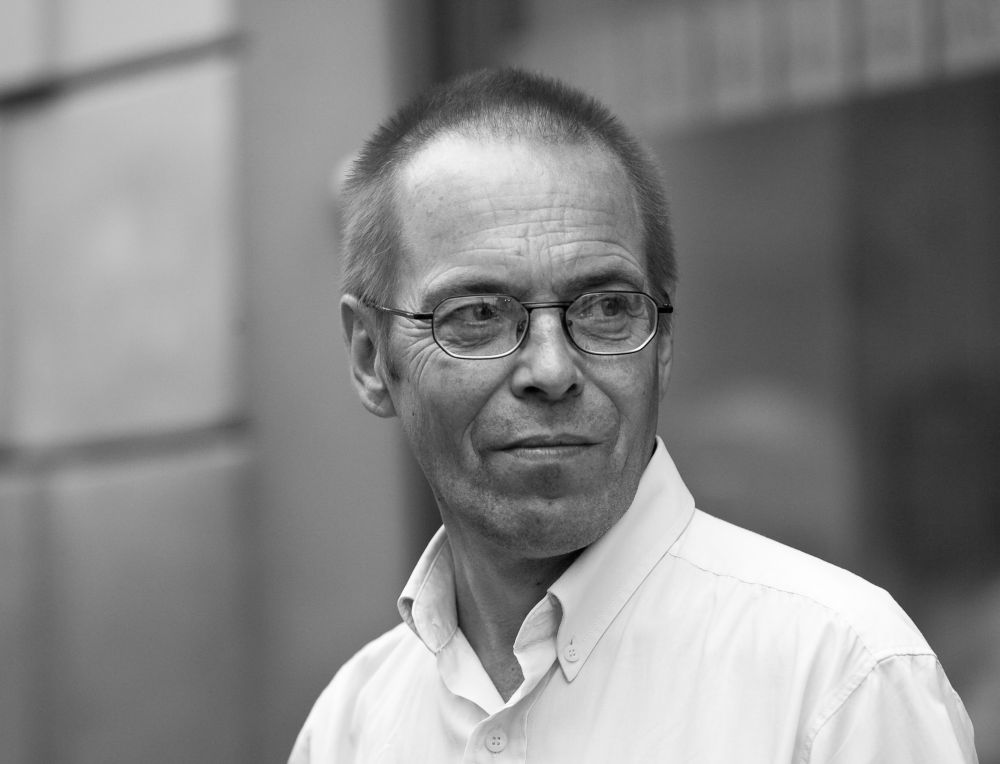Valdas Papievis
Valdas Papievis (born 1962) has been living in Paris since 1992 but still remains an important presence in Lithuanian literary life and an active member of the Lithuanian expat community in France. He has written four novels and two books of short fiction, and has become a particular favourite with the Lithuanian reading public since his novel Eiti (To Go, 2010) was elected Book of the Year. One might distinguish two main factors that shape his work. One is Paris – or possibly French culture more broadly – its elegance, sophistication and mannerisms; and the other is the life of an expat, the ‘homelessness’ of it, the superficiality of relationships, even loneliness and isolation. He is often praised for the beauty of his prose.
Odilė, arba Oro uostų vienatvė (Odile, or the Loneliness of Airports). Vilnius: Alma littera, 2015. – 312 p. English sample translation available
Odilė is ninety years old. She has lived in Paris for most of her life, and her life has been mostly charming and fulfilling, but still sometimes disappointing. In her old age, she has a companion – the nameless narrator of the novel – who lives with her, takes her on long walks, and listens to her stories and memories. It is a book about old age, about facing it gracefully and with as little bitterness as possible. But it is also a book about loneliness, about keeping distances, respecting boundaries. The title is a beautiful metaphor – it means “The Loneliness of Airports”. There are hardly any airports in the story itself. Instead, it describes the relationship between Odilė and her companion – like two strangers, both waiting for the next leg of their journey, and passing the time with pleasant, polite conversation.
Ėko (Ecco). Vilnius: Odilė, 2021. – 134 p. Croatian, English, Slovenian sample translations available
The latest novel by Valdas Papievis – a text of waning subtlety about loneliness, loss of self, and obliteration, about the nature of writing and creative work, about literature being born when reality collides with imagination. The action takes place in Paris which, this time, drastically frees itself from the festive sheen of its imagery, creating the text’s memorable melancholy and the slightly apocalyptic mood. As in Eugène Atget’s photograph, which decorates the cover of the book, the city is empty, rather misty, and nostalgically surrendering itself to nature: the Medici Fountain is stagnating, the Luxembourg Gardens are overgrowing and returning to their virgin state. The nameless narrator of the novel, Papievis’s flaneur, wandering around the crumbling Paris encounters the dog Ėko, who becomes his devoted companion, the echo of his internal world, thoughts, and memory, and the witness of today’s ecce homo. Roaming around the city, the two meet Emili, reflect upon the refugee crisis and climate change, observe nature’s exhaustion with man, and man’s with the pursuit of success. Throughout the text, which aims to “capture moments of the crumbling time”, runs a vein of anxiety about the present day, while memories turn into imaginings, and lives into plot matrixes. With Paris crumbling and falling into the dust of memory, together with Ėko, almost all Papievis’s characters from his past novels fly by, his previous thoughts and reflections resurface in a new light, foregrounding a point of view that is deeply concerned with life and its fragile beauty.
Selected translations
French: Ėko. Translated by Caroline Paliulis. Le Mesnil Mauger: Le Soupirail, 2023
Un morceau de ciel sur terre. Translated by Caroline Paliulis. Le Mesnil Mauger: Le Soupirail, 2020
German: Odile oder die Einsamkeit der Flughäfen. Translated by Markus Roduner. Berlin: KLAK Verlag, 2020
Contact for inquiries: kotryna.pranckunaite@lithuanianculture.lt
